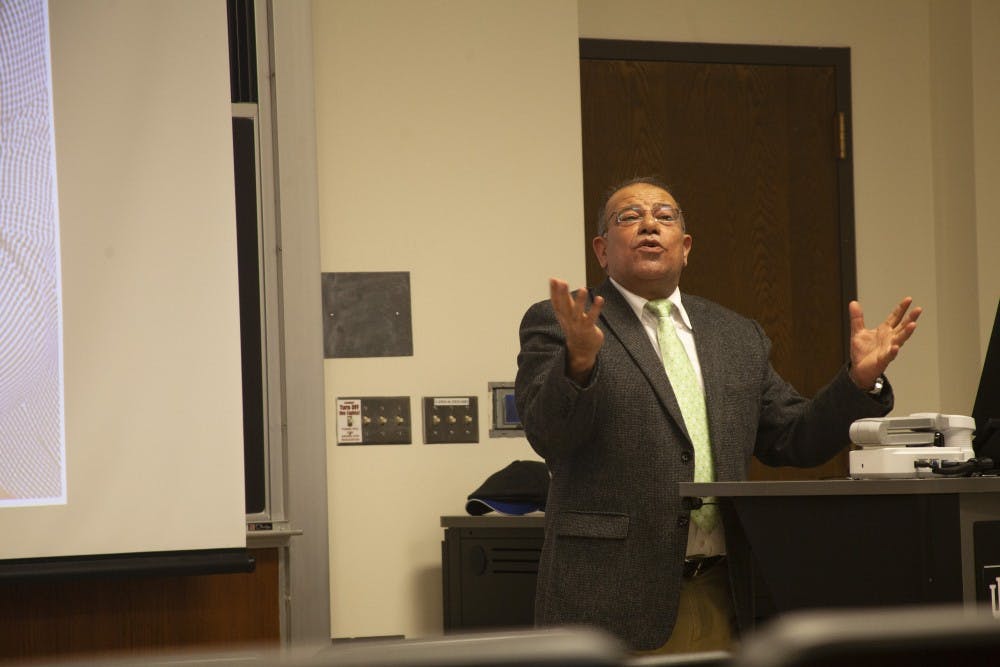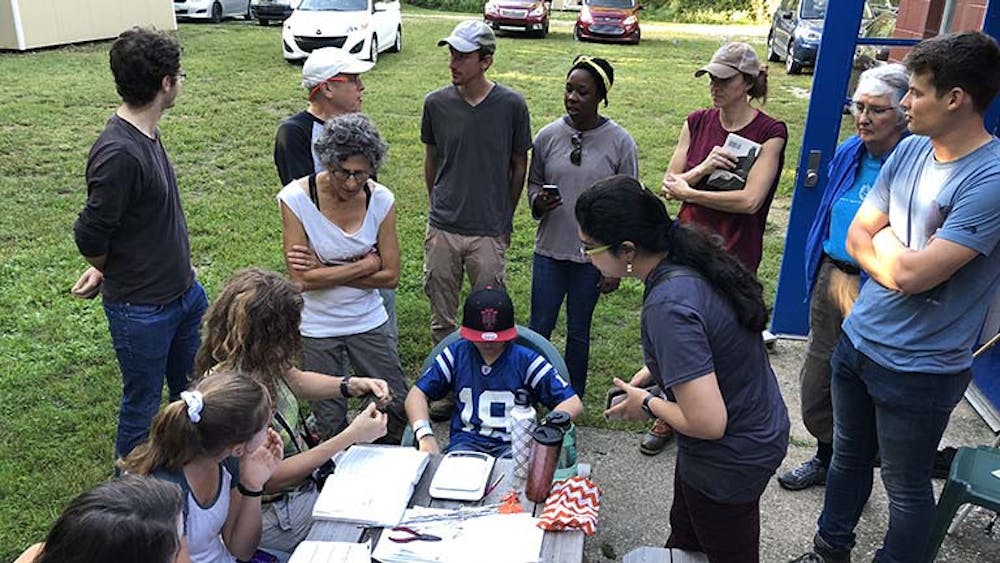IU Hillel, an organization for Jewish students, was one of several sponsors to bring a Palestinian human rights activist to speak Monday evening about the Israeli-Palestinian conflict.
This was a first for Hillel. Many audience members were disturbed by the speaker’s views.
Bassem Eid spoke to about 30 people in Woodburn Hall at an event titled “A Palestinian point of view.” As students trailed in, two security guards manned the entrance.
“We think it’s important to provide a balanced picture of what’s happening in Israel and what the country’s all about,” IU Hillel Executive Director and rabbi Sue Silberberg said.
Israel and Palestine have claimed rights to the same land since an independent Israeli state was founded in 1948. The conflict has caused several wars and bursts of violence. It has resulted in human rights abuses on both sides and millions of Palestinian refugees.
The United States and United Nations have attempted to form solutions, but the conflict continues with no end in sight.
Pro-Palestine activists have spoken on campus before, Silberberg said. But Bassem Eid was the first Palestinian speaker Hillel has sponsored.
Silberberg said the Palestinian perspective was one many students have been asking to hear.
Eid has lectured worldwide on the Israeli-Palestinian conflict. He founded the Palestinian Human Rights Monitoring Group in 1996, a non-partisan human rights organization.
Drawing from his experiences growing up in a refugee camp in Jerusalem and years of award-winning activism, Eid’s speech focused on harmful effects of leaders and advocacy organizations who try to intervene and Palestinians’ desire to preserve their dignity.
He said internal conflict among Palestinian leaders has led Palestinians to lose trust.
His contentious speech blamed European leaders and advocacy groups for preventing a resolution and misunderstanding what is needed to solve the conflict. The only countries who can solve the Israeli-Palestinian conflict, Eid said, are Israel and Palestine.
“Stop using us, and stop calling us victims,” Eid said. “Because who is victimizing us is our own leadership.”
Eid’s message prompted both curious and accusatory responses from the audience. One man stormed out after speaking over Eid in response to another audience member’s question.
A man who identified himself as Israeli-Arab rejected Eid’s lack of criticism toward Israel.
There is enough criticism already, Eid said.
“You have the wrong details about the situation,” the man said.
“Thank you,” Eid said, gesturing to Silberberg to end the session.
As Eid, Silberberg and audience members filed out, small groups broke into heated debates.
“The most important thing is that we’re having this discussion together,” said sophomore Jordana Ichilov, Indiana Israel Public Affairs Committee president.
Eid said he’s not optimistic about a future Palestinian state. He said he expects one or two generations to pass before a resolution is reached.
Although high-level Israeli and Palestinian leaders cannot agree, Eid said he has seen individual Palestinians and Israelis connect. They eat together, work together and live together.
He directed the audience to not try to solve the conflict.
"Don't ever try," Eid said. "You will never succeed."






